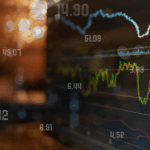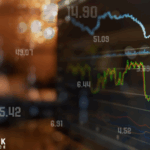Schroders, a global leader in asset management, has successfully transitioned to 100% renewable electricity across its operations globally. This move marks a significant step in its environmental strategy, reflecting a firm commitment to sustainability and clean energy. As corporations worldwide address climate challenges, such initiatives resonate with investors and stakeholders alike. Schroders’ swift achievement of this objective ahead of its original timeline underscores its proactive approach to corporate sustainability. The global scope of this endeavor covers its extensive network of more than 70 offices, which collectively contribute significantly to the company’s carbon footprint.
Previously, Schroders announced ambitious climate targets, including reducing Scope 1 and 2 emissions by 46% and business travel emissions by 50% by 2030, all benchmarked to 2019 levels. The company also aims for 67% of its suppliers to have science-based targets by 2026. Achieving the 100% renewable electricity target during 2024 has positioned Schroders ahead of its schedule and enhances its strategy towards achieving a net zero status by 2050 or earlier. The installation of over 2,600 solar panels at its Horsham Campus has been a pivotal factor, alongside 58 electric vehicle charging stations to facilitate the transition to greener transportation options for staff.
What Does This Milestone Mean for Schroders?
This accomplishment signifies a major leap forward in reducing Schroders’ operational greenhouse gas emissions, specifically targeting its Scope 2 market-based emissions. By securing the renewable electricity supply ahead of schedule, Schroders enhances its credibility and leadership in corporate sustainability. The move has implications for its business model, emphasizing environmental responsibility without compromising operational efficiency. The investment in renewable infrastructure like solar panels serves both as a commitment to carbon reduction and a practical solution to energy needs.
Could This Influence Industry Standards?
The proactive approach by Schroders could serve as a benchmark for others in the financial services sector and beyond. Companies observing Schroders’ pathway might be encouraged to accelerate their renewable energy agendas. Schroders illustrates how investment in sustainability can yield tangible benefits while aligning with broader environmental goals. With momentum building around ESG (Environmental, Social, Governance) objectives, Schroders’ strategy reflects an integrated approach to meeting these targets, possibly influencing peer organizations to enhance their own endeavors.
The installation of solar panels at the Horsham Campus produces approximately 1.13 GWh annually, highlighting the efficient utilization of renewable resources for operational energy needs. Almost a quarter of the site’s electricity requirements are met through this renewable source, confirming Schroders’ role in fostering sustainable energy solutions.
The sentiment within Schroders is one of achievement and forward-thinking. Madeleine Cobb, Global Head of Corporate Sustainability at Schroders, emphasized:
“We’re proud to have secured 100% of our corporate electricity supply from renewable sources in 2024, meeting our target a year ahead of schedule. Our action to decarbonise Schroders’ electricity supply, including through solar panel electricity generation at our Horsham Campus, will have a meaningful impact on our Scope 2 market-based carbon emissions.”
Such statements reinforce the proactive strategies adopted by Schroders and their impact on minimizing carbon footprints.
Schroders’ commitment to sustainability extends beyond simply meeting targets; it signals opportunities for growth, innovation, and market leadership in an era where environmental responsibility is increasingly scrutinized. As Schroders progresses towards its net-zero emissions target, the company’s ongoing initiatives are likely to focus on addressing broader aspects of carbon accountability, thereby integrating more sustainable practices across its supply chain and operations.










